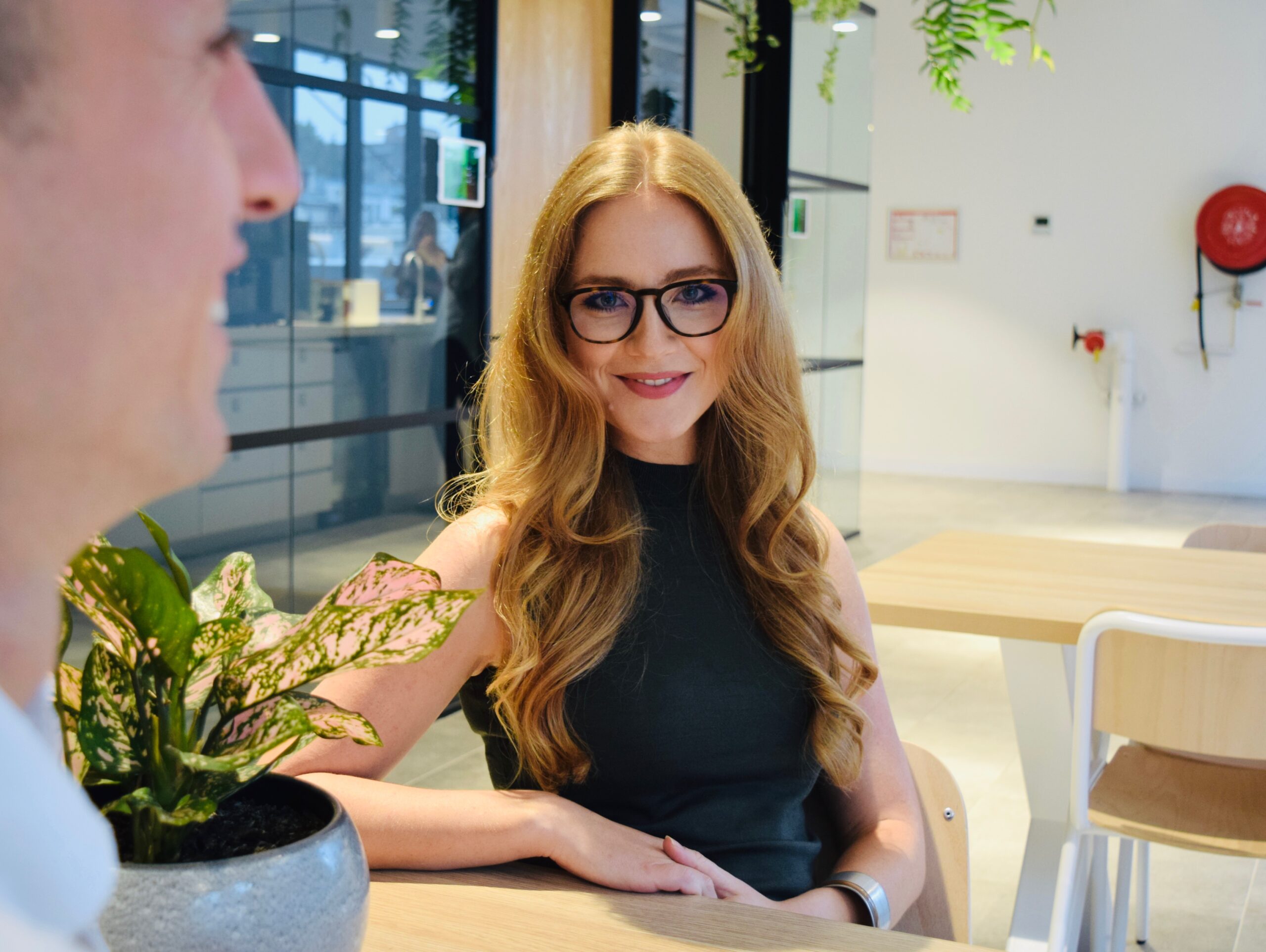Well before the coronavirus pandemic, many women in Australia faced an uphill equity battle with their retirement savings and simple literacy regarding money. Madden & Assoc. caught up with Financial Advisor and Co-founder of Fox & Hare, Jess Brady to discuss her defining purpose to help guide more women into a stronger position with their money, while also imploring greater female participation and influence within the financial sector.
How would you address women to feel more confident when it comes to their finances?
We have just launched a side project with another business called Pure Finance, and it is a project called Ladies Talk Money. We sort of worked out, we, and I am talking as a female, do not know how to start the conversation, so we don’t. And that is completely to our detriment. We gain nothing from not having these conversations. Ladies Talk Money is a separate project for Fox and Hare, and it is an 8-part video series really unpacking all of the different complex reasons, some structural reasons, why we think women are not as financially empowered as men. If you look at a lot of the research, what it says is that women lack, on average, financial confidence in comparison to men.
From a competency perspective, the research says that we are the same. Women are just as capable as men, but it is just the confidence component. And again, it comes back to that self-fulfilling prophecy. If you are in a relationship and both of you are equally competent, but one of you feels more confidence, then it is likely that that person will run with it and learn more and lean in and become better. I think we have a lot of work to do in the industry to help both people on their journey; acknowledging that some people just won’t be as equally interested in it, but that shouldn’t mean that they can’t understand their own finances. We need to teach women that it is okay to be brave and that they don’t have to be perfect, because at the moment it is really holding us back. What it leads to is women retiring with significantly less super than men, longevity risks for women outliving their savings, the divorce rates in Australia are exceptionally high and therefore the fastest rate of homelessness in Australia is older women. This is exceptionally scary statistics and could be any one of us. It is about understanding that the risk is real and that you need to do things today to prevent that from happening. But those statistics scare people and when you get scared, it is easy to see why people would close the door. We need to give it to people in a way that empowers them and makes them feel good about it.
In your opinion, how do we need to address the Super gap for women?
I think there are a few things here. Definitely at a government level, there needs to be policy change, I believe. I think at a superannuation fund level, we should be asking super funds what they are doing to support parents who are taking time off work. Be it mother or father. Thirdly, it is important to remember that people can spouse split super so that if you are taking time out of the workforce, it is not completely at the detriment to you. That means, your partner, if they are continuing to work, can split their superannuation with you. In fact, that was a strategy that I presented to a couple yesterday who had a baby on the 5th Jan.
This is important, absolutely we need policy change, but if we wait for that and that is all we do, then it is to our detriment.
I think it is also about putting organisations under the spotlight. If your company says they are all about team and culture and empowerment, then why do you have different parental leave entitlements for men and women? How are we ever going to change the dynamics of how women are being left behind financially if we don’t accept that men have the opportunity to have more parental support. The client that I was speaking to yesterday, he gets 2 weeks. I mean, that is just unacceptable in today’s day and age where we’re all talking about commitment to family and flexible working and culture. Organisations need to put their money where their mouth is and improve financial leave more broadly and pay super during parental leave.
In your experience, are there any trends or changes that you have particularly noticed/witnessed? Such as initiatives by companies to encourage more women to join the industry?
There is so much more work to be done. Because if you’re a university student thinking about studying financial advice, I don’t think you realise how personal and deeply emotional it is. I think that a lot of younger females are not seeing the real role a financial adviser plays in people’s lives, and I believe that the rates of admission into financial advice studies are predominantly male. I think that we have a lot of work to do to teach university students that actually this is a very EQ related role, not just IQ and numbers on a spreadsheet and analysis paralysis all day long. It is very personal. I think if we do a better job of that, we’re going to have people who are more empathetic, and people who have higher EQ will lean into those studies. But, unfortunately, I don’t think we’re doing an amazing job on educating people around that at the moment.
MetLife did a great initiative last year where I know that they gave several sponsorships to women to go to a conference, and I thought that was a fantastic initiative that they should continue to do. I know that TAL have been supporting the Women in Advice Award for several years, and I hope that they continue to do that because I think that is very important to celebrate and reward amazing women. And, I actually believe there is quite a bit of pushback from women about the awards starting, and maybe I shouldn’t talk about this because maybe it isn’t right, but women were like “no we can just win the adviser of the year award, we don’t need our own award”. But actually, because we are such a small cohort of the advice community, more needs to be done to put the spotlight on women.
If more women give advice, then more women will get advice. There is something to be said for the fact that if you can’t see it, then you can’t be it. If you can’t see that there is something that you aspire to be, if you don’t resonate with the person that is up on the stage, then it is going to immediately tell you in your head that that’s not enough. I got really upset a few years ago at an awards night specifically for women, the only awards night that I have ever been to where they had an EA and a PA of the year, I got really cross. Because I felt like that was just a really gendered role, and I don’t know if that is just me being really silly, but they didn’t have that in the open category, and I felt like that was making it worse. But apart from that, I believe that we need to celebrate diversity of all types. Today we have talked a lot about gender, but it is not just gender. We have to do such a better job of having more cultural diversity in advice, more ethnic diversity in advice. We are not a very diverse community and that just means that we don’t serve the wider community because people don’t reach out to us because they don’t feel that we resonate. I feel a lot of work needs to be done on diversity and inclusion more broadly in the industry.
Do you find that there is an emerging number of women in financial services?
It is like 20%, I think. It needs to grow rapidly.
Why do you think there is such a low representation of women in the industry?
I think it comes back to the point that you guys made before. We have to support and nurture young people in roles, and we have to put people in roles when they don’t feel ready for them.
We have to really identify that if there is a female in your office who is extremely capable, but doesn’t feel ready for an advice role, it is upon the directors and the partners of that business to push that person to take that role and not wait for them to come to you. Because if we waited for that person to come, we might be waiting forever. We also need to look at our leadership style, and work out how we identify talent, and how we nurture them through their journey, and how do we recognise that there might be a confidence barrier and that is something that we need to develop in people. I feel that because a lot of the advice community are running small businesses, developing staff can sometimes get left behind.
But if you have an amazing paraplanner and you think they would be fantastic in an advice role, then I sort of feel that it is our job to support them into doing that and push them into it by giving them all of the tools and development that they need. I think that would lead to a lot more women doing it. I am of this belief that it is okay if you don’t feel like you are capable, because you are, you have met all of these criteria and I can see that you’re extremely capable. Be brave and be scared and do it anyway. That goes for anyone in their career.
I feel like we should be really comfortable with throwing ourselves in the deep end, and I have done it a few times in my life, and I was absolutely terrified. When I started my job at Macquarie, I came home and cried for many nights because I was very convinced that they would realise that I had no idea what I was doing and that I was going to get fired immediately, which of course never happened. But I think that we must be brave and have to take big leaps and jump off the cliff and hope that our wings don’t fail us. I think that is something that women need support doing.

